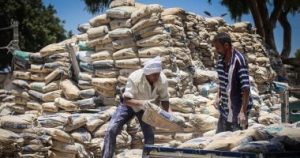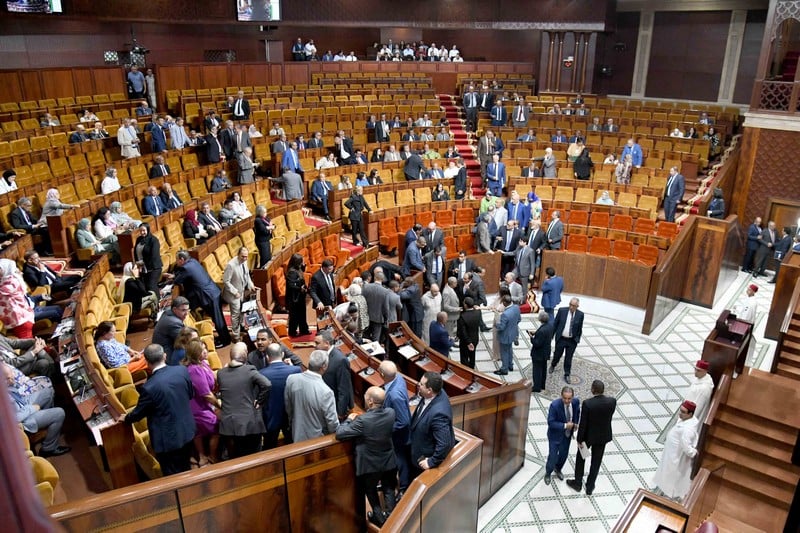Components of the majority and opposition in the Moroccan House of Representatives emphasized the importance of opening legislative debate on Law 104.12 related to price freedom and competition, to address the ongoing annual controversy over price increases amid suspicions of collusion disguised behind market freedom. They consider that the current phase requires a bold and responsible approach that restores the necessary balance between market logic and consumer protection.
Given the continued discussion over years about structural imbalances in distribution chains and the widening margin of unjustified profits for groups sometimes monopolizing economic influence, parliamentary components warned during their communication with the newspaper that the parliament can initiate reconsideration of some provisions of this law to ensure adequate protection of market values and competition, and to present effective initiatives that protect citizens from extortion and exploitation resulting from monopoly.
Allal El Amrawi, head of the Istiqlal Party’s Unity and Justice group in the House of Representatives, confirmed that this text can be subject to parliamentary debate if it becomes clear that it is insufficient, especially after years of application. He emphasized that it is a legislative text like any other, not a revealed scripture or final provision, and parliament can reconsider it, especially in aspects that have sparked ongoing discussions in recent years.
El Amrawi stressed the importance of developing this legislative text to make it more efficient and effective, stating: “Its provisions can be reviewed to make it capable of protecting citizens, the tourism sector, and the public space in this country.” He also pointed out that legal modernization, despite its necessity, does not replace practical enforcement, adding: “Whatever the content of the law, deterrence must be activated by local authorities, alongside the necessity of essential ethical values.”
He warned that Morocco has chosen market freedom and cannot retreat from this option, which is not unique to Morocco but also represents a lever for innovation and initiative by all. However, the reality is not rising; as politicians, they witness unacceptable matters, such as some prices set at rest stops on highways, which requires serious discussion because it concerns a privilege granted to an economic actor and requires a clear and binding terms of reference in this context.
Idris Sentesi, head of the Movement Party group in the House of Representatives, said that Law 104.12 indeed needs amendment to clearly allow government intervention if prices of basic goods and services exceed a certain ceiling, as its Article 4, which allows this possibility, is vague and has hindered its activation. He noted that the problem of rising prices tested the effectiveness of this law issued in 2014.
Sentesi also pointed out that the wave of inflation tested the Consumer Protection Law and the Competition Council Law, adding that the entire system needs evaluation and reconsideration. He emphasized the proactive role of the Competition Council to prevent collusion and monopoly and reduce excessive costs benefiting intermediaries that significantly affect consumers.
The head of the “Party of the Ear of Corn” group said they hoped the government would have a real will to develop realistic and tangible solutions to protect citizens’ purchasing power amid an international and regional context marked by fluctuations and rising living costs. Unfortunately, they note the absence of an integrated vision that responds to public sentiment and considers the vulnerability of wide segments of society.
He added that the crisis cannot continue to be addressed with temporary decisions or seasonal campaigns that do not tackle the root problems; rather, bold reforms are needed that affect market regulation mechanisms and achieve a balance between legitimate profit logic and protecting the public interest. There is also a need to empower constitutional institutions such as the Economic and Social Council and the Competition Council to fully perform their roles in evaluation, proposal, and accountability.













Recommended for you
Talib Al-Rifai Chronicles Kuwaiti Art Heritage in "Doukhi.. Tasaseem Al-Saba"
Exhibition City Completes About 80% of Preparations for the Damascus International Fair Launch
Unified Admission Applications Start Tuesday with 640 Students to be Accepted in Medicine
Egypt Post: We Have Over 10 Million Customers in Savings Accounts and Offer Daily, Monthly, and Annual Returns
His Highness Sheikh Isa bin Salman bin Hamad Al Khalifa Receives the United States Ambassador to the Kingdom of Bahrain
Al-Jaghbeer: The Industrial Sector Leads Economic Growth